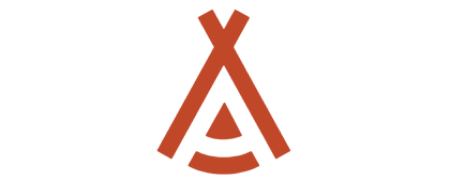What Supplements Should You Take

The human organism is superbly adapted to an environment that no longer exists. Our modern world is totally inappropriate for the bodies we inhabit today. The vast majority of our strength, health and happiness problems result from this mismatch. The solution is to find ways to recreate our ancestral environment in the modern world. The information presented here is meant to provide you, descendant of the sole surviving species of genus Homo (the baddest mammalian predators that ever lived) insights to reclaim and build your strength, health and happiness in the modern world.
My personal philosophy is that dietary supplements should truly supplement a whole-food, nose-to-tail, nutrient dense diet. In other words, I believe that we should aim to get most of our nutrients from whole-foods, sun exposure, cold exposure and earthing — the old fashioned way, the way that our early ancestors did. Give your body the same nose-to-tail nourishment that the baddest mammalian predators grew up on, see what happens. This is what my family and I do, and we have the strength, health and happiness metrics to support our efforts.
I also believe that there are exceptions to this and that supplements should play a very vital role in our overall health and happiness... for instance, true bio-available vitamin A needs to come from liver. Most people won't eat liver for various reasons. With that said, a liver supplement is a perfect whole-food addition to obtain vitamin A, along with all the other synergistic co-factors that come with a nutrient dense superfood:
The Most Common Nutrient Deficiencies
Supplements Should Be Targeted To Address NutritIonal Deficiencies
 If you're still with me, I believe that supplements should be targeted to support our nutritional deficiencies. A high quality pasture-raised, grass-fed beef liver is a great starting point. Add in the nourishment from mid-day sun, pasture-raised eggs, fermented veggies (or kimchi), and sea vegetables and you've just about addressed the most common nutritional deficiencies that plague most people. * Magnesium will always be the exception... it's virtually impossible to get an adequate supply of magnesium which is why my family and I use a high quality transdermal magnesium oil by Ancient Minerals which can be found here (I have no affiliation with).
If you're still with me, I believe that supplements should be targeted to support our nutritional deficiencies. A high quality pasture-raised, grass-fed beef liver is a great starting point. Add in the nourishment from mid-day sun, pasture-raised eggs, fermented veggies (or kimchi), and sea vegetables and you've just about addressed the most common nutritional deficiencies that plague most people. * Magnesium will always be the exception... it's virtually impossible to get an adequate supply of magnesium which is why my family and I use a high quality transdermal magnesium oil by Ancient Minerals which can be found here (I have no affiliation with).Supplements That I Take
To better understand the what and why as it relates to the supplements that I take, you should know what I eat. When you know what I eat, you can better understand why I use certain supplements. And, if you don't already know, I follow a primal/paleo/ cyclical ketogenic aligned nutrition plan. Just like our early ancestors, I go through periods of feast and famine.
My typical 1st meal is a delicious shake and it looks like this...
This shake takes me about 15 to 20 minutes to make... It's super convenient... and, it's down right delicious. If I don't make a shake, I will have a bunch of pasture-raised eggs (8 or so) that are smothered in butter with a side of avocado, nitrate-free, sugar-free bacon and a dollop of sour cream.
My typical second meal is cooked... it's hot... it's better than any restaurant food... it looks like this...
I generally carb reload on the weekends with plenty of sweet potatoes, raw local honey, the occasional sorghum and various in-season fruits. I also do a 24 hour fast on Sundays... it's not as bad as it sounds. I eat dinner as I normally would on Saturday evening... skip my first meal on Sunday, and eat an amazing fish-based dinner (usually wild caught sardines) with my family on Sunday. We do cold exposures together (google the benefits or scroll to the bottom of this page where it reads ACTIVATING ANCIENT PATHWAYS ) and we go on barefoot hikes every Sunday with wife and kids. Connecting to mother earth creates strong parasympathetic tone for enhanced recovery for the week to come. The basis of how we live is this... if our early ancestors did it, we do too... or at least we try to.
SUPPLEMENTS THAT i TAKE
Keep in mind that my family and I eat a very nutrient dense diet. We consume the whole animal just as our ancestors did... That's right, we eat the liver, kidney, pancreas, spleen, heart, thymus, bones, tendons, ligaments and more... and we eat this way every day (except on vacation we take Liver and Beef Organs supplements). We love our bone broth (which is my wife's specialty), and we eat tons of pastured eggs.
My wife is awesome enough to sprout chic peas for us. Then, she turns half of the batch into the best homemade hummus in the world. Super high in folate (NOT FOLIC ACID, big diff)!!
SLEEP
Sleep is ranked right up there with our nutrition. This is a very abridged version of what we do to ensure that we get good, restorative, deep sleep:
METHYLATION
Methylation is central to everything... especially for performance optimization and autoimmune issues. If you don't know about methylation, you need to, because it's involved in repairing DNA, regulating gene expression, immune regulation, fighting infections and getting rid of environmental toxins... this is just the very tip of the iceberg. Here are some resources to get you started:
If you have already mapped your genome with 23andMe, then go to GeneticGenie.org to get your methylation report (it's free, but I recommend donating a few bucks for the service).
This covers the basics. I've only included the below on mitochonria nutrition for those that have mitochondrial dysfunctions.
MITOCHONDRIA
Those who know me know that I'm obsessed with being a fat burner... in contrast to a sugar burner (which most people are). Burning fat for energy is the foundation for keeping your mitochondria plentiful, happy, and robust. If you can’t access fat for energy, your cellular power plants will not work as well as they can or should. Any mitochondrial health regimen must include that as a basic precept.
Next, in no particular order is intermittent fasting, avoid late night meals (no eating within 3 hours of bedtime), consume D-ribose (which is raw material for ATP molecule) and don't forget to ground. Most people forget about our connection to the earth... it's critically important to optimize health and happiness. Here's the supporting cast, courtesy of www.marksdailyapple.com
Magnesium
Ah, magnesium, darling mineral of the Primal world, participant in nearly every physiological function known to man, and now essential cofactor for proper mitochondrial function? Yes, I believe so. Magnesium deficiency led to decreased mitochondria-per-cell count and increased size of individual mitochondrions in liver and kidney cells, which indicates that not only did low magnesium drop the overall number of mitochondria, but also increased the workload of the remaining mitochondria. Eat plenty of leafy greens, the occasional handful of nuts or seeds, and a starchy tuber when it suits you, taking care to supplement with a good magnesium -ate if you need it, and you should be fine on magnesium. Or, if you want to be extra sure, use the transdermal magnesium spray that we use (referenced earlier in the article).
Zinc and Iron
Deficiencies in both zinc and iron can reduce the mitochondria’s ability to synthesize heme, which leads to oxidant leakage (the increased free radicals that I mentioned in last week’s post), “DNA damage, neural decay, and aging.” Luckily, zinc and iron are present in animal products and shellfish, so few Primal eaters run the risk of severe deficiencies. If you need to, supplement, but do so wisely: zinc toxicity alters mitochondrial metabolism and lowers ATP production in liver mitochondria. The liver processes both fats and sugars and healthy liver mitochondria are crucial for that important task. If you consume liver regularly, or you take our liver supplement, your zinc and iron should be covered.
Manganese
You don’t hear a lot about manganese, but it plays a role in creating a potent mitochondrial antioxidant: manganese superoxide dismutase. Without adequate manganese, you won’t make enough superoxide dismutase, and without enough mitochondrial manganese superoxide dismutase, you run the risk of developing a neuropathology or suffering an ischemic brain injury (what often happens after stroke). Eat your mussels, raspberries, and dark chocolate. At The Johnson house, it's practically a ritual to have our 100% cacao (with some raw honey drizzled) after every dinner.
Carnosine
In rats with a genetic predisposition to developing Alzheimer’s disease, supplementing with carnosine reduced the prevalence of classic AD hallmarks, the first and foremost of which was mitochondrial dysfunction. Carnosine is a potent scavenger of free radicals, and it’s a dipeptide of the amino acids beta-alanine and histidine. Meat eaters get plenty of carnosine, but supplements exist if you want to go that route. We eat plenty of meats, nose-to-tail!
Carnitine
Carnitine is biosynthesized from methionine and lysine, two amino acids which are highly prevalent in red meat, and your mitochondria like a lot of carnitine because it’s required for shuttling fatty acids into the mitochondria for processing. Yeah, if you want mitochondria to do one of their most basic jobs – break down fatty acids for energy – you better consume ample amounts of meat, or supplement with L-carnitine. Did I mention that we eat plenty of meats?!
Vitamin A
Vitamin A deficiency caused oxidative damage to liver mitochondria in rats. Folks, in addition to handling fat and sugar metabolism, liver mitochondria also process ammonia, a potentially toxic byproduct of protein metabolism, so you’d better eat your egg yolks and liver and even cod liver oil along with your egg whites and steak and cod filets. Liver is the exclusive source of meaningful amounts of vitamin A (retinol). If you don't eat liver, why not try our liver supplement...
Vitamin C
Vitamin C is a universal antioxidant, internally produced by most organisms (except for us and a couple others), and it should come as no surprise to learn that it (along with resveratrol and alpha-lipoic acid) reduces excessive reactive oxygen species production by the mitochondria. It does so by increasing manganese superoxide dismutase (remember that?). Just be careful about supplementing during heavy cardio, as vitamin C has been shown to dampen mitochondrial biogenesis by interfering with normal cellular adaptations to endurance exercise. Maybe that was the problem back in my endurance days when I was downing 25,000 milligrams of C a day during training (hey, Linus Pauling said to supplement vitamin C “to bowel tolerance.” How times have changed.) I doubt sticking to natural sources of vitamin C, like fruit, raw meat, or fresh vegetables would have the same negative effect on exercise adaptation. We don't supplement with vitamin C, but we do eat raw liver, fresh fruits and fresh veggies.
Coenzyme Q10 (CoQ10)
Our bodies make CoQ10, which is required for the transfer of electrons during mitochondrial oxidative respiration. Mitochondrial oxidative respiration is how we produce ATP for bodily functions and day-to-day life. Without enough of it (maybe we’re taking statins, which block the pathway responsible for synthesizing CoQ10, or we’re not eating enough foods high in CoQ10), our mitochondria’s ability to make ATP suffers, since CoQ10 is the only compound that can do its job. The best dietary sources of CoQ10 include animal hearts (since hearts need a lot of CoQ10 to generate the energy required to function), sardines, and virgin red palm oil. Even so, it’s still tough to get significant CoQ10 from food, which is why I like to supplement it. We eat plenty of heart... it's always on the menu. For those that don't (and/or won't), consider our Beef Organs or Heart supplement.
Pyrroloquinoline quinone (PQQ)
PQQ is a bacterial biofactor present in soil, on plants, and in animals. It stimulates plant and bacterial growth, and when animals eat the plants (or soil) that contains the bacteria, they also get the PQQ. Biofactors extremely similar to PQQ have even been detected in interstellar dust, suggesting that it has been an important component of the global ecosystem for billions of years. As is the wont of other bioactive compounds with similarly expansive legacies and ubiquitousness (sunlight/vitamin D comes to mind, as do essential minerals), PQQ appears to interact with a number of physiological processes, including both mitochondrial function and biogenesis. It improves mitochondrial respiratory control and stimulates mitochondrial biogenesis. One could probably write an entire article on this stuff’s interactions with the mitochondria, and I won’t, but I will direct interested parties to a comprehensive paper on the subject (PDF). Most folks focus on supplementing with PQQ, which can be a bit expensive, but another option is to eat natto (fermented soybeans, a legume, but a highly nutritious form that contains vitamin K2 in addition to PQQ) and drink green tea, both of which are high in PQQ.
Resveratrol
Resveratrol is the darling of the life extension set, and while I think some of its effects might be overstated, it does appear to improve mitochondrial function (in mice) and induce mitochondrial biogenesis (in rodent epithelial cells, the cells that comprise the lining of blood vessels). Furry little humans mice are not, but it’s interesting nonetheless.
Alpha-lipoic acid
Naturally occurring most richly in heart, liver, kidney, spinach, and broccoli, lipoic acid supplements have been shown to reduce mitochondrial decay in humans. Another study, albeit in rats, found that alpha-lipoic acid, along with a few other “mitochondria supportive” supplements, improved rats’ athletic performance and recovery. In both cases, it stimulated mitochondrial biogenesis. I’m sure there are more nutrients, minerals, vitamins and supplements that affect mitochondrial function, but this is a decent list to consider when trying to man your cellular power plant workforce. And I bet if you take care of the bulk of these, either by eating good food or supplementing, you can keep a couple Homer Simpsons around for comic relief without too many problems.
Article still in progress....
The human organism is superbly adapted to an environment that no longer exists. Our modern world is totally inappropriate for the bodies we inhabit today. The vast majority of our health and happiness problems result from this mismatch. The solution is to find ways to recreate our ancestral environment in the modern world.
Sleep like a rock... eat like our early ancestors did... move like our ancestors did... avoid danger like our ancestors did (think lions, trans fats, sugars, fluoride, excessive wifi, emfs, vaccines, mercury, etc)... go barefoot, connect to the earth... get sensible sun exposure... get cold (environmental conditioning)... mind your magnesium... stay positive, think about the wonderful things in your life that you're grateful for.
The information presented here is meant to provide you, descendant of the sole surviving species of genus Homo (the baddest mammalian predators that ever lived) insights to reclaim your strength, health and happiness in the modern world.






